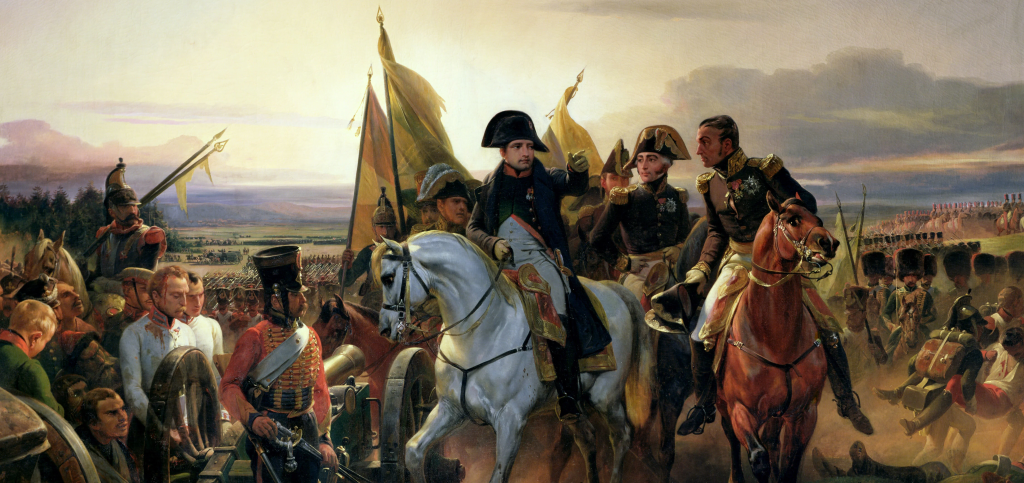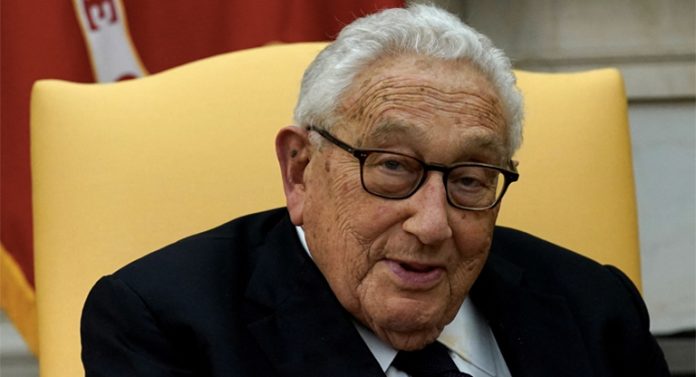About to celebrate his first hundred years of life, Henry Kissinger is the subject of a widespread tribute. But since it is impossible to describe his life and work in an opinion column, perhaps it is useful to stop at a point of his strategic thinking that contains a fundamental lesson in the time we live in.
An admirer of the balance of power system, throughout his entire career -both in academia and in diplomacy- Kissinger promoted the search for stability through a framework of legitimacy acceptable to the system’s central actors.
A point deployed in A World Restored. The Politics of Conservatism in a Revolutionary Age (1954), in which he would explain the problems of the European order after the convulsions of the French Revolution and the Napoleonic wars.
An extraordinary essay on the centrality of legitimacy. A concept that is not necessarily equated with “fair” but with the ability to reach a minimum framework of understanding between States. In which they accept a set of norms and rules to the point that none of them is so dissatisfied as to be tempted to initiate a course of action to challenge said canons. As happened with Germany after the Treaty of Versailles.
To the point that the arrangements of 1919 would perhaps be the opposite of those of the Congress of Vienna of 1815. When France was defeated and responsible for having broken the European order, it was admitted as a great power. Thanks to the talent of perhaps the most admired diplomat by Kissinger: K. Metternich.
Because, as Kissinger wrote, if the stability of Europe was rescued from chaos, it was made possible by the work of the British minister Castlereagh and his Austrian counterpart. The one who masterfully explained that statesmen must try to reconcile what is considered fair with what is possible. In a world in which while the first depends on the domestic structure of each State, the second arises from the relationship of forces derived from the resources, the geographical position and the determination of the different members of the international community.

Those who would apply their political talent to warn that beyond their wishes, to overcome the traumas of the revolutionary era and provide the system with a framework of stability, it was necessary to achieve a balance of power. The one that would arise from organizing a European order around five great powers made up of Great Britain, Russia, Austria, Prussia and a France within its natural borders.
After Waterloo, the fall of France was to be followed by a new equilibrium. A reality warned by Metternich who detected that it was Austria, with its geographical position eventually doomed to devastation, the most interested in its restoration. Theirs was the pivot state without whose assistance none of the other powers could achieve a decisive victory. Which forced him to exercise the most sophisticated diplomacy.
An understanding to which Metternich had unsuccessfully invited Napoleon himself. By offering him a scheme in which France would abandon its conquests beyond the Rhine, ceasing its revolutionary policy. Which would have implied -in Kissinger’s words- that Napoleon would stop being Napoleon. Perhaps perhaps allowing himself to be saved.
But that genius could not stop. Unable to understand a sense of proportion, and convinced that his power came from an unceasing series of military campaigns, he could not be content – as Talleyrand warned – with being King of France. Giving himself up to a career that would take him from the republic to the military dictatorship, from the military dictatorship to the universal monarchy and from the universal monarchy to the disaster of Moscow.
Because -as Kissinger wrote-, in the style of a Greek tragedy, the warnings of the oracles are not always enough to avoid disaster. Since salvation does not reside in knowledge but in the acceptance of reality. To the point that Napoleon would become incompatible with the peace of Europe.
The Congress of Vienna would be called upon to restore the balance of power. Because the logic of war is power, while the logic of peace is proportion. And while triumph in war is victory, triumph in peace is stability. The one that had to be preserved through a formula of legitimacy that prevented one of the actors in the system from being tempted to return to challenge the European order.
Kissinger warned that any acceptable international understanding implies some degree of dissatisfaction for the parties. Because -paradoxically- if one power were fully satisfied, all the others would be totally dissatisfied and a revolutionary situation would perhaps be inexorable.
Stability -for Kissinger- would arise from an order in which its members perceive that they have a relatively acceptable security. In which although claims and partial dissatisfactions persist, it is essential that there be no complaints of such a magnitude that they lead them to seek to destroy the system instead of amending it.
Kissinger recognized that the Congress of Vienna was an effort to achieve stability and not revenge. Which implied that France should not be torn to pieces but brought to accept its limits. His merit would be based on the slogan of avoiding extreme dissatisfaction that could lead some actor to the point of seeking to tear down the agreement instead of amending it diplomatically. An understanding that -in essence- would work for almost a hundred years, endowing the system with an almost unrepeatable time of relative peace and prosperity.
Teachings that are once again relevant in today’s world. When the third most important player in the world understands -rightly or wrongly- that the global order that emerged at the end of the Cold War contains unacceptable doses of illegitimacy. With the aggravating circumstance of leading it to adopt a revisionist policy. To the extreme of questioning the very foundation of the system of sovereign States based on the inviolability of borders.
